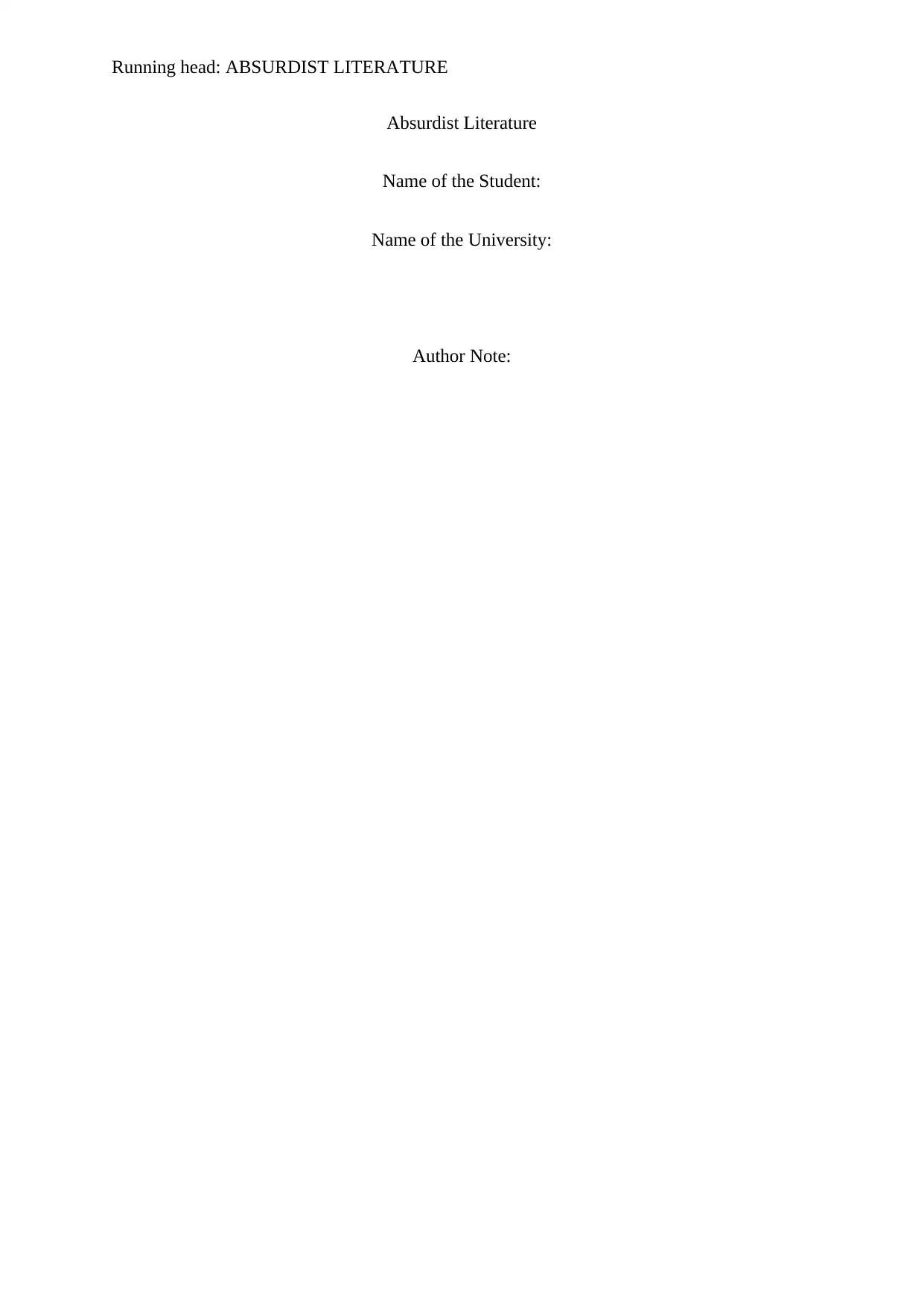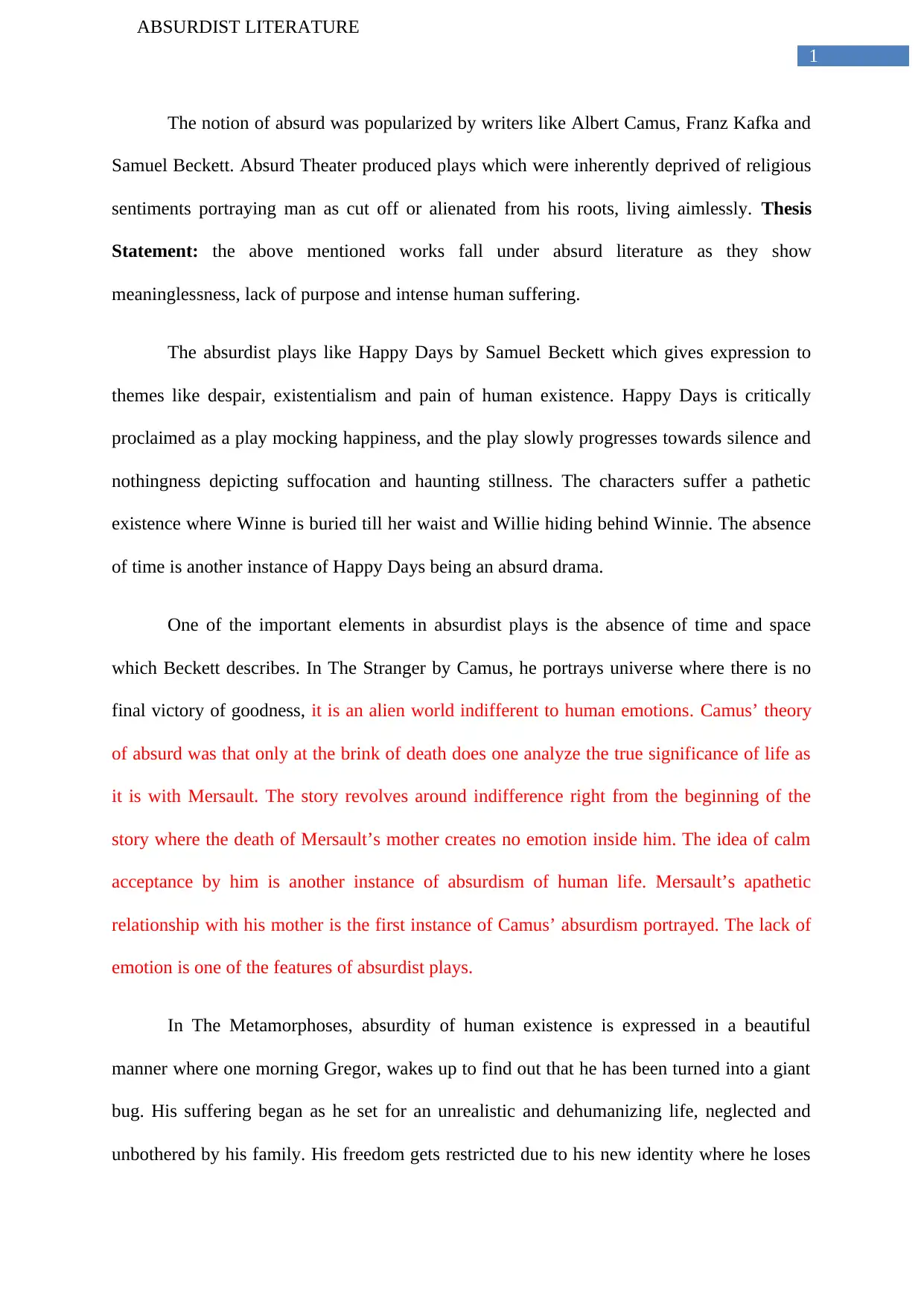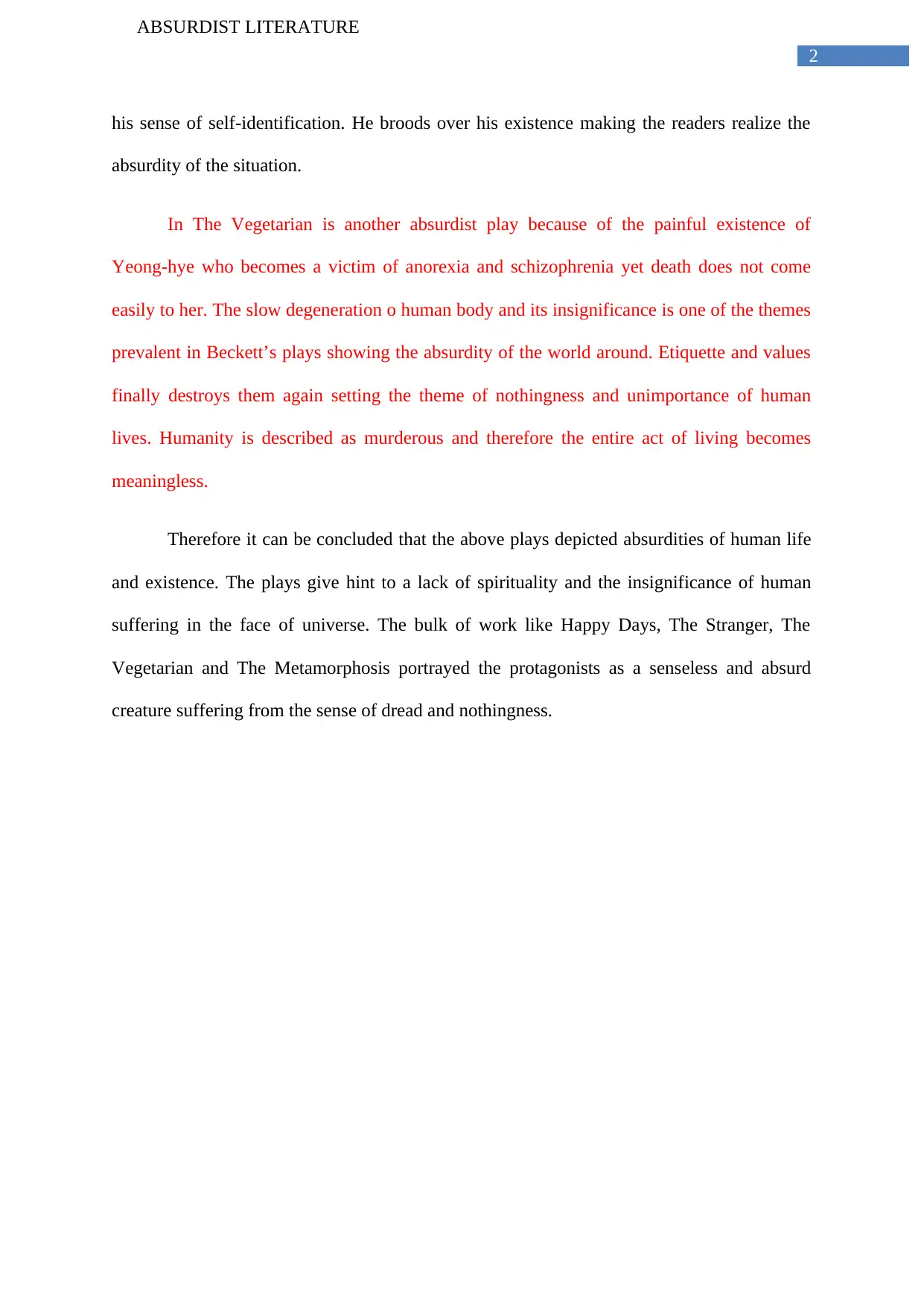An Examination of Absurdist Literature: Key Themes and Examples
VerifiedAdded on 2021/04/19
|3
|571
|35
Essay
AI Summary
This essay analyzes absurdist literature, focusing on themes of meaninglessness, existentialism, and human suffering as portrayed in works by Samuel Beckett, Albert Camus, and Franz Kafka. The analysis begins with an examination of Beckett's 'Happy Days,' highlighting the play's exploration of despair, existentialism, and the suffocating nature of existence. It then delves into Camus' 'The Stranger,' demonstrating how the protagonist's indifference and the novel's portrayal of an uncaring universe exemplify absurdist principles. The essay also covers Kafka's 'The Metamorphosis,' emphasizing the protagonist's transformation and the resulting alienation. Finally, it touches on the themes of nothingness, the insignificance of human lives, and the lack of spirituality that are prevalent in absurdist plays. The essay concludes that the plays depict the absurdity of human life and existence, with the protagonists facing dread and nothingness.
1 out of 3







![[object Object]](/_next/static/media/star-bottom.7253800d.svg)